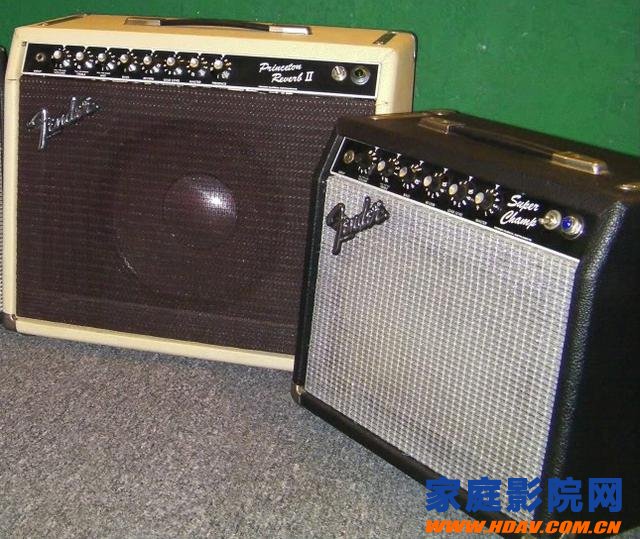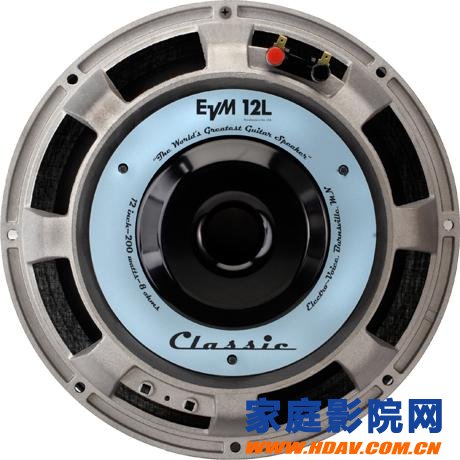[Home Theater Network HDAV.com.cn] When it comes to the "loudness" of the speakers, many people seem to have a confused understanding of this concept. When it comes to volume, many musicians only consider the power and rated wattage of the speaker. In general, the more wattage does not mean the louder the loudness. But it is undeniable that Watt is still an important consideration, and the power of the speaker is also an important factor affecting the loudness of the speaker. Decibel and volume level Decibel ("dB" for short) is a unit of counting for the ratio between two numbers. Ok, I understand that many people are not very interested in this, so I will simplify things and try not to involve "mathematics". With regard to the logarithmic scale, you can't just understand it in the usual way—for example, if you double the number, it will increase, but it doesn't mean “doubleâ€. For example, 100dB is double the 50dB, but it does not mean that its "loudness" is "double" of 50dB. When it comes to "loudness", it involves the sound pressure level (also known as SPL), and a level increase of about 10 dB will make the sense of loudness "double". In other words, if a speaker that produces 90dB SPL is compared to a speaker that produces 100dB, most listeners will think that the second speaker has about twice the loudness of the first speaker. Wattage, power and SPL So how big a wattage will get double loudness? Let us assume that if there are two speakers, one is 10 watts and the second is 20 watts. A 20-watt power speaker has twice the wattage of another speaker, but after conversion, double the wattage will only increase the 3dB SPL. Remember, if you want to double the loudness of your speakers, you need to add 10dB to the speakers, and a 20-watt speaker is twice as large as a 10-watt speaker, but it doesn't double. Loudness. The same is true in high-powered devices, where a 100-watt speaker does not produce twice the "loudness" of a 50-watt speaker. Assuming the same speaker, it will only increase the loudness of 3dB. Although the volume change will be very obvious, it will never double the loudness. Speaker sensitivity level The speakers in the speakers also have specifications for sensitivity and performance - they convert the input electrical energy into acoustic energy. Dynamic moving coil speakers (which you can find in most guitar and bass speakers) are very inefficient, converting most of the input power into heat, not sound. Typically, the sensitivity of the speaker is measured in the anechoic chamber (no reflection, soundproof room) and is described by a unit/format like this: 90dB @ 1W/1m Translated, it means "90 decibels (SPL) and 1 watt of power, the sound pressure level produced by a distance of one meter from the speaker is 90 decibels." The efficiency of the efficient speaker will be higher, and vice versa. The effect of the speaker will have less sensitivity. Efficient speakers will make your speakers louder. (Figure 1) Figure 1: Although the power of these two speakers is almost the same (20 watts and 18 watts), the sound of the left speaker is louder due to the installation of efficient speakers. Combine Therefore, we assume that there is a speaker with a sensitivity of 90dB @ 1W / 1m and a power of up to 100W. If we adjust the power of the speaker to 1 watt, it will produce 90dB at a distance of 1 meter. If we adjust the power to 2 watts, then the SPL measurement will be 93dB. If we increase the power of the speaker to 10 watts, the SPL measurement will increase to 100 dB. At this time, the power of 1 watt is doubled compared to the previous one. So, in fact, they need more than 10 times the power to make us feel the loudness doubled. Since the speaker we imagined has a maximum power of 100 watts, we can double the volume again. In theory, a power of more than 100 watts will produce 110 dB SPL. 1 watt = 90 dB. 100 watts or more than 100 watts of power = 110 dB. This is a huge power increase, but you can only feel four times the volume level. As you can see, if you want to get the "double" volume effect, you need to increase the power and the wattage of the speaker. Let us introduce the sensitivity/efficiency of the speaker into this formula. If we replace the 90dB @ 1W / 1m speaker with 100dB @ 1W / 1m, its digital change is very obvious. We know that an input power of 1 watt will give us 100 dB SPL. Remember, the first speaker requires 10 watts of power to reach the same volume! Therefore, installing an efficient speaker will give us more volume. Again, it also applies to the maximum power handling capability of all speakers. Assuming a 100dB @ 1W / 1m speaker capable of handling up to 100 watts, it can deliver up to 120dB SPL; while a 90dB @ 1W / 1m 100W speaker doubling volume has a maximum level of only 110dB SPL. Speaker power + speaker efficiency and power handling capacity = maximum volume So keep in mind that increasing the power of the speakers will make it louder, and increasing the sensitivity of the speakers will give the speakers more power in the available power range. Therefore, this also means that the "loudness" of any speaker can not be judged by only the wattage. You must know the power handling and sensitivity of the speakers, etc. These are important factors that can increase the loudness of your speakers. If your 15 watt speaker is equipped with a relatively inefficient speaker, but its loudness is enough to meet your requirements, then you don't have to buy a high wattage speaker - you only need to replace an efficient speaker, such as Electro- Voice EVM 12L (Figure 2), this will not only meet your volume requirements, but also eliminate the need to replace the entire speaker. Similarly, you may not need a 100-watt speaker; if you replace the 95dB @ 1W / 1m speaker in a 50-watt speaker with 101dB @ 1W / 1m, they have a very noticeable change in volume level, you need To accept.... In fact, when using inefficient speakers, 100 watts or even 50 watts are louder. Figure 2: Replacing an inefficient speaker with a high-efficiency speaker, such as the E/V EVM 12L, will make the speaker louder. Of course, if you really want to make the speakers louder, then you need to have a speaker with high power, efficient speakers and power handling. More fresh and fun home theater information, please pay attention to home theater network (WeChat: cnhifi) http://, the country's most influential home theater audio player interactive media website. Guangzhou Bolei Electronic Technology Co., Ltd. , https://www.nzpal.com
